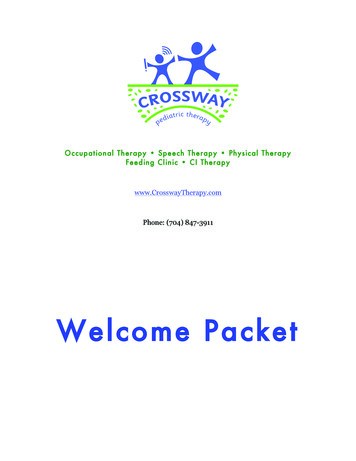
Transcription
Occupational Therapy Speech Therapy Physical TherapyFeeding Clinic CI Therapywww.CrosswayTherapy.comPhone: (704) 847-3911Welcome Packet
CrosswayPediatricTherapy WelcomePacketMissionCrossway, Inc. provides comprehensive pediatric occupational therapy servicesfor children and families with special needs in the home, natural environment orclinic setting. The team at Crossway, Inc. believes in integrating the family,caregivers and the multi-disciplinary team into the individualized treatmentprogram for a child with special needs.HistoryAs a practitioner, Shelley Portaro, MS, OTR/L recognized a need for morepediatric therapy services in the Charlotte area. In 2004, Shelley openedCrossway Pediatric Therapy as a sole provider. Shelley chose the name“Crossway” to demonstrate the journey made by families and children withspecial needs. The image of the bridge symbolizes the child’s path whichultimately leads to their dreams and independence if provided with theappropriate supports.Through this vision, Shelley has expanded her services from a sole provider to amulti-disciplinary team with an office of nearly 5,000 square feet of therapeuticspace. Through the support and dedication of the therapists and specialists,Crossway has grown and will continue to grow to meet the demands of theCharlotte area. The team at Crossway believes in using multidisciplinary andeducational approaches to facilitate the desired goals for each child and theirsupporting family.Many children develop typically. They need only love, nourishment, and a gentleguiding hand to help them develop into successful adults. On the other hand,some children need a little extra support to reach milestones necessary to developinto successful and independent adults. Crossway Pediatric Therapy facilitatesdevelopment and supports families through occupational therapy, learningspecialists, speech and language pathology, and physical therapy.Keep in mind that each family comes to Crossway at a different point in theirjourney. We are here to help and support your child and family to the best of ourabilities. At times the therapists will make recommendations for servicesprovided within Crossway and to outside sources. Some children require thesupport of only one discipline, while other children need the support of varioustherapists in addition to supporting disciplines such as neuropsychologists,neurologists, psychologists, etc.2
CrosswayPediatricTherapy WelcomePacketThe Crossway DifferenceThe Crossway family is dedicated to providing the best therapy possible andtherefore the training of each therapist is extensive. Crossway therapists andspecialists seek out the most recent research and treatment approaches to helpfacilitate and support the development of each child.Crossway Pediatric Therapy is dedicated to supporting and facilitating thedevelopmental milestones necessary to help children succeed at school, in thecommunity, and within their family. Crossway believes in building self-esteemand self-confidence necessary to be as independent as possible.The Therapy ProcessCrossway services a vast number of children in the clinic, at home, and in theschool settings. Many of the therapists are required to leave the clinic throughoutthe day to treat children in other settings within the community. We encourageall families to be a part of your child’s therapy in order to perform the activitieswhen your therapist is not there. We are here to educate you on how to play,transition and go through your daily routines so that you can also illicit theoptimal responses from your child. Grandparents or other caregivers are invitedto come to the therapy sessions at your discretion if you think that it will help toincrease the awareness of how to work with your child.Families receiving services in the clinic, we ask that you arrive 5–10 minutesbefore your appointment and return to pick up your child at least 15 minutesbefore the completion of his/her session. It is important to the therapists atCrossway to provide the best treatment possible to each child and must thereforeadhere to his/her schedule. If at any time you feel as though you have notreceived enough information about your child’s treatment session or overalltreatment plan, please talk with your therapist and set up a family conference.If your child is attending a 60-minute treatment session it will typically be laidout as follows: 1–5 minutes – Therapist will ask about the child’s week and inquire aboutany changes in schedule, difficulties outside the clinic, affects of priortreatments, and other pertinent information. 45–50 minutes – Your child will receive about 50 minutes of skilledtherapy 5–10 minutes – The last portion of the session the therapist may ask you toobserve the child and/or discuss the overall treatment session. At this timethe therapist will typically provide strategies and/or “homework” totranslate treatment activities across settings.Many parents and guardians find it very beneficial to come to each treatment3
CrosswayPediatricTherapy WelcomePacketsession with a notebook and pen to record information provided by the therapist.Throughout your child’s time at Crossway you should expect to receive varioushand outs, homework assignments, resources, home exercise programs, etc.Crossway is here to address the needs of each child, however strategies andactivities must continue within the home and community for your child to reachhis/her highest potential.Insurance InformationDue to the variations of insurance coverage, it is critical to keep track of thenumber of therapy sessions attended by your child. Crossway keeps count of thetotal number of visits; however, to avoid confusion and unexpected coverageissues it is very helpful to also keep track for your self.Attached, you will find a visit count form to help keep track of the number ofvisits your child has attended as well as your co-payment and general coverage oftherapy services.Unfortunately, many insurance companies only cover a certain number of visitsper year. By keeping track of the number of visits, you will avoid unexpectedissues related to the number of visits allotted to your child. We are currently onpanels with BCBS of NC, NC and SC Medicaid, Aetna and Medcost.Cancellation PolicyDue to the demand for OT, ST, and PT, any appointment cancelled with less than24-hours notice and not rescheduled will result in a cancellation fee of 55.Repeated cancellations may result in either forfeiture of permanent appointmentor termination of service. Failure to contact the office prior to appointment timewill be as no show and a full fee-for-service may be charge.Cancellation fees are not reimbursed by insurance companies or Medicaid andwill be billed to the responsible party.Convenient to our Facility In case you need to run a quick errand while we work with your child in our funplay house, Crossway is conveniently located down the street from a variety ofstores and restaurants including Wal-Mart, Dollar Tree, Harris Teeter, Starbucks,Steak and Shake, McDonalds, the New Zealand Café and more! But, don’t forgetto come back in time for a tutorial on the activities that were conducted,assessments and suggestions for home programming.When leaving the clinic make a left on Monroe Rd. followed by a left on SardisRd. The restaurants and stores are located on both sides of the street. Pleaseremember to return to the clinic 15 minutes prior to the end of your child’stherapy session.4
CrosswayPediatricTherapy WelcomePacketGroup Services, Classes, and EventsCrossway Pediatric Therapy is committed to supporting the development ofchildren through individual and group treatment sessions. Each year Crosswayhosts a variety of group classes and camps to address fine motor, gross motor,social skills, handwriting, sibling support groups and more. See seasonal flyersposted in the clinic and on our website.Birthday PartiesFor many children with sensory processing difficulties or other special needs, abirthday party can be an overwhelming experience. Crossway Pediatricsrecognizes the stress a birthday can have on a child and welcomes theopportunity to host birthday parties in the therapy gym to create a supportiveand exciting birthday environment for children with special needs. If you areinterested in learning more about the birthday packages please speak with yourtherapist.Remember that Crossway is continually growing and evolving so please refer tothe monthly newsletter for a list of upcoming classes, group therapy sessions, andthe most current information.Closing Dates & HolidaysCrossway Pediatric Therapy is closed on the following Holidays: New Year’s Day Memorial Day Independence Day Labor Day Thanksgiving Day and the Day after Christmas Eve and Christmas DayIn the event that a holiday falls on a Saturday, we are closed on Friday; whenholiday’s fall on Sunday, we are closed on Monday.5
CrosswayPediatricTherapy WelcomePacketTherapies Provided by Crossway Pediatric TherapyOccupational TherapyPediatric occupational therapists focus on the development of children necessaryto be successful in their everyday life. The first five years of life are an importanttime for growth and development. Development refers to the change in a childthat occurs during the life span. The changes occur in an orderly sequenceinvolving physical, emotional and cognitive development. For children who donot progress through the developmental sequence, OT can provide support andskilled treatment to help facilitate and meet the developmental milestonesthroughout child development.Nearly all intervention activities with children have playful qualities, because playis an occupation of high relevance and importance to a child. Play within atherapy session begins with the child’s current skill level, then the therapistguides the activity to a point at which it becomes challenging for the child, withthe goal of eliciting a higher level response. The therapist grades (makes it easieror more difficult) to focus on the specific skills necessary to help the child meethis/her goal. The therapist supports performance through modeling, cueing,physical assistance, and reinforcement (Case-Smith, 2005).OT intervention addresses the following areas (Case-Smith, 2005): Bilateral motor integration Fine motor strength and coordination Visual perception Visual motor skills Handwriting Splinting Gross and fine motor development Self-care Sensory processing Social skills Cognition (memory, sequencing, safety awareness, etc) Timing and rhythm Adapting activities or providing assistive technology Modifying environments Promoting children’s participation and preventing disability through educationof the child and supporting family6
CrosswayPediatricTherapy WelcomePacketPhysical TherapyPhysical and occupational therapy often share similar or common goals for theirclients and offer complementary approaches to intervention. While boththerapies address similar goals, the disciplines use different techniques, theories,and approaches to treat clients. Treatment typically includes therapeutic exercise,cardiovascular endurance and training, and training in activities of daily living(American Physical Therapy Association, 1999). As with occupational therapy, inthe pediatric setting PT provides treatment through the use of play.Physical therapy intervention addresses joint function, muscle strength, mobilityand endurance. Physical therapists address gross motor skills that involve thelarge muscles of the body and help to improve children’s posture, gait, andoverall body awareness.In general services for children provided by physical therapists include (CaseSmith, 2005): Developmental Activities Strengthen Movement and mobility Tone management Motor learning Balance and coordination Recreation, play, and leisure Equipment design, fabrication, and fitting Orthotics and prostheticsSpeech-Language PathologyAccording to the American Speech-Language-Hearing Association (ASHA, 2002),speech pathologists work to prevent speech, voice, language, communication,swallowing, and related disabilities. They screen, identify, assess, diagnose, refer,and provide treatment and intervention, including consultation and follow-upservices, to children at risk for speech, voice, language, communication,swallowing and related disabilities (Case-Smith, 2005). Speech and languagedisorder can affect the way children talk, understand, analyze or processinformation. Speech disorders include the clarity, voice quality, and fluency of achild’s spoken words. Language disorders include a child’s ability to holdmeaningful conversations, understand others, problem solve, read andcomprehend, and express thought through spoken or written words.Communication also develops in an orderly sequence. Language skills are dividedinto receptive and expressive language. Receptive Language refers to what a childunderstands such as vocabulary, following directions and pointing to pictures.Expressive language refers to what a child can communicate either by words,signs or gestures. Speech skills are the skills required to produce certain sounds,7
CrosswayPediatricTherapy WelcomePacketoften called articulation or phonology. Speech-language pathologists may alsoprescribe and dispense augmentative and alternative communication devices andother communication prostheses and assistive devices. Furthermore, they workwith children who have oral motor problems that cause eating and swallowingdisorders.Speech-Language Pathologists address the following areas (Case-Smith, 2005): Provide prevention, screening, consultation, assessment and diagnosis,treatment, management, and counseling for the following disorders: Speech Language (comprehension and expression in oral, written, graphic language:language processing, and pre-literacy Swallowing Sensory awareness related to communicationLearning Support SpecialistLearning Support is an area distinct from other educational or instructionalfields. A Learning Support Specialist is experienced and trained to focus on theprocess of learning and how to facilitate learning by addressing differentprocessing areas (visual processing, memory, auditory processing, etc.) utilizingmultisensory methods and programs. Often, this work is focused on reading ormath, but it can also effectively address comprehension, language processing andwriting skills. The goal of working with a Learning Support Specialist is toimprove foundational academic skills to the point where a student is meetinghis/her academic potential and able to work more independently.The Learning Support Specialists always begins at the student’s current level offunction and moves forward to help facilitate learning and further skilldevelopment. Developing confidence with new skills and abilities is an importantpart of Learning Support. Often, the methods utilized by a Learning SupportSpecialist can help when other methods seem ineffective. Learning supportspecialists are flexible enough to deal with anything, creative enough to addressevery student’s needs, and have the ability to make even hard work enjoyable.The relationship between Learning Support and other therapies is ideal in amultidisciplinary therapeutic environment because collaboration and knowledgeof other professional disciplines is integral to success.In general, learning support specialists work with students of all ages to improvetheir reading, math, writing, comprehension and language processing skillsthrough the use of multi-sensory processing methods. The focus of treatment ison the development of confidence, necessary to identify and use the child’sstrengths, even when facing challenging work.8
CrosswayPediatricTherapy WelcomePacketContact Information:Crossway Pediatric Therapy, 9129 Monroe Rd. Suite 100 Charlotte, NC 28270Phone: (704) 847-3911 Fax: (704) 847-2033 .com Andrew@CrosswayTherapy.comFamily Treatment 6.Co-Pay:Deductible:Effective Date:Number of visits:PTOTSPTherapist SignatureDateParent/Guardian SignatureDate9
Physical therapy intervention addresses joint function, muscle strength, mobility and endurance. Physical therapists address gross motor skills that involve the large muscles of the body and help to improve children's posture, gait, and overall body awareness. In general services for children provided by physical therapists include (Case-
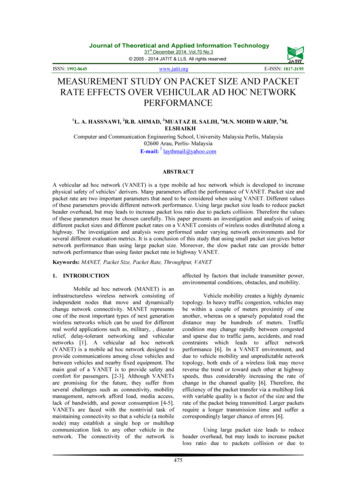
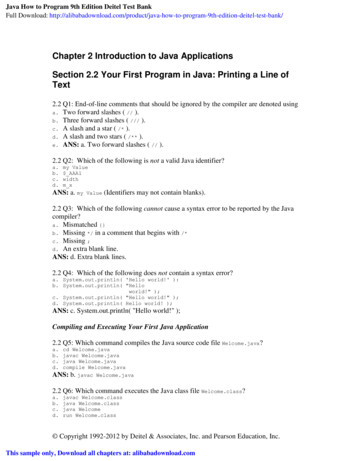
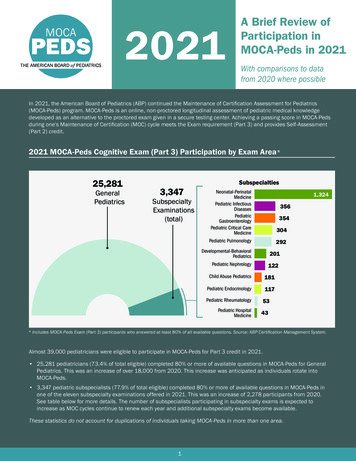
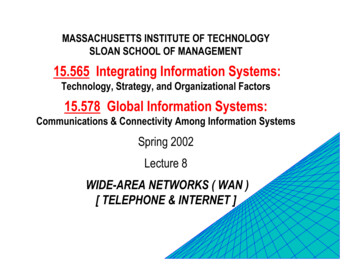
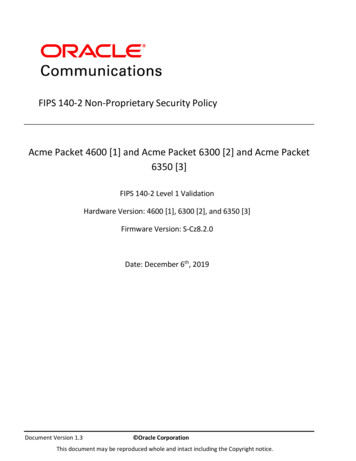
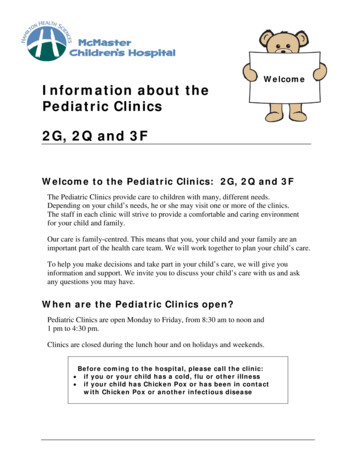
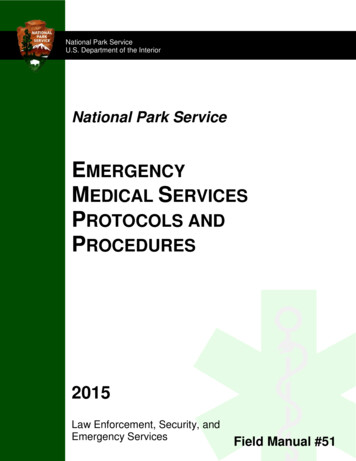
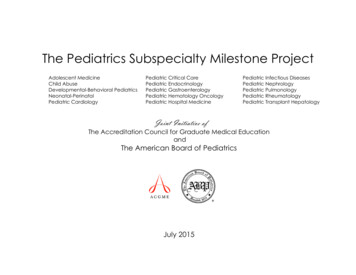


![FIPS 140-2 Non-Proprietary Security Policy Acme Packet 1100 [1] and .](/img/49/140sp3490-5601486.jpg)